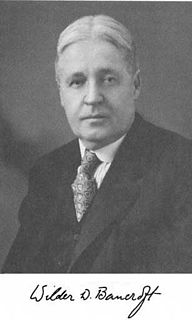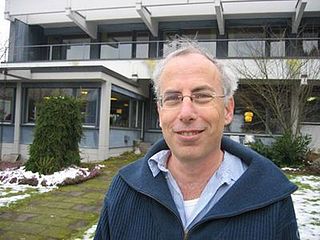A Quote by Rebecca Goldstein
Like mathematics and music and cosmology and philosophy, poetry, too, can "infinitize" us, granting us what immortality there is to be had in this mortal life. And all those who vibrate in harmony to language that itself vibrates to the harmonies of the infinite are entitled to inclusion among the "small group of people.
Related Quotes
If one believes philosophers, then what we call religion is only a deliberately popularized or an instinctively artless philosophy. Poets seem to consider religion rather as a variation of poetry which by misjudging its proper beautiful game takes itself too seriously and one-sidedly. Philosophy, however, admits and recognizes that it can begin and complete itself only with religion. Poetry seeks only to strive for the infinite and despises worldly utility and culture, which are the true antitheses of religion. Eternal peace among artists is thus not far away.
We must not listen to those who advise us 'being men to think human thoughts, and being mortal to think mortal thoughts' but must put on immortality as much as possible and strain every nerve to live according to that best part of us, which, being small in bulk, yet much more in its power and honour surpasses all else.
Poems On Life: Life is given to us, we earn it by giving it. Let the dead have the immortality of fame, but the living the immortality of love. Life's errors cry for the merciful beauty that can modulate their isolation into a harmony with the whole. Life, like a child, laughs, shaking its rattle of death as it runs.
Comparatively, we are so much quicker to return favors and to pay our debts to mortals - and we should be responsive and grateful. But what of Him who gave us mortal life itself, who will ere long give us all immortality, and who proffers to the faithful the greatest gift of all, eternal life? We are poor bookkeepers, indeed!
We are the spirit children of a Heavenly Father. He loved us and He taught us before we were born into this world. He told us that He wished to give us all that He had. To qualify for that gift we had to receive mortal bodies and be tested. Because of those mortal bodies, we would face pain, sickness, and death.
Poetry is related to philosophy as experience is related to empirical science. Experience makes us acquainted with the phenomenon in the particular and by means of examples, science embraces the whole of phenomena by means of general conceptions. So poetry seeks to make us acquainted with the Platonic Ideas through the particular and by means of examples. Philosophy aims at teaching, as a whole and in general, the inner nature of things which expresses itself in these. One sees even here that poetry bears more the character of youth, philosophy that of old age.
We can distinguish three groups of scientific men. In the first and very small group we have the men who discover fundamental relations. Among these are van't Hoff, Arrhenius and Nernst. In the second group we have the men who do not make the great discovery but who see the importance and bearing of it, and who preach the gospel to the heathen. Ostwald stands absolutely at the head of this group. The last group contains the rest of us, the men who have to have things explained to us.
All things whatsoever God in his infinite wisdom has seen fit and proper to reveal to us, while we are dwelling in mortality, in regard to our mortal bodies, are revealed to us in the abstract, and independent of affinity of this mortal tabernacle, but are revealed to our spirits precisely as though we had no bodies at all.
My plea therefore is this: Let us get our instruments tightly strung and our melodies sweetly sung. Let us not die with our music still in us. Let us rather use this precious mortal probation to move confidently and gloriously upward toward the eternal life which God our Father gives to those who keep his commandments.
No one really understood music unless he was a scientist, her father had declared, and not just a scientist, either, oh, no, only the real ones, the theoreticians, whose language was mathematics. She had not understood mathematics until he had explained to her that it was the symbolic language of relationships. "And relationships," he had told her, "contained the essential meaning of life."
In this present crisis, government is not the solution to our problem; government is the problem. From time to time we've been tempted to believe that society has become too complex to be managed by self-rule, that government by an elite group is superior to government for, by, and of the people. Well, if no one among us is capable of governing himself, then who among us has the capacity to govern someone else? All of us together, in and out of government, must bear the burden.
we need poetry most at those moments when life astounds us with losses, gains, or celebrations. We need it most when we are most hurt, most happy, most downcast, most jubilant. Poetry is the language we speak in times of greatest need. And the fact that it is an endangered species in our culture tells us that we are in deep trouble.
Like musicians who can read and write complicated scores in a world without sounds, for us mathematics is a source of delight, excitement, and even controversy which are hard to share with non mathematicians. In our small micro-cosmos we should ever seek the right balance between competition and solidarity, criticism and empathy, exclusion and inclusion.







































